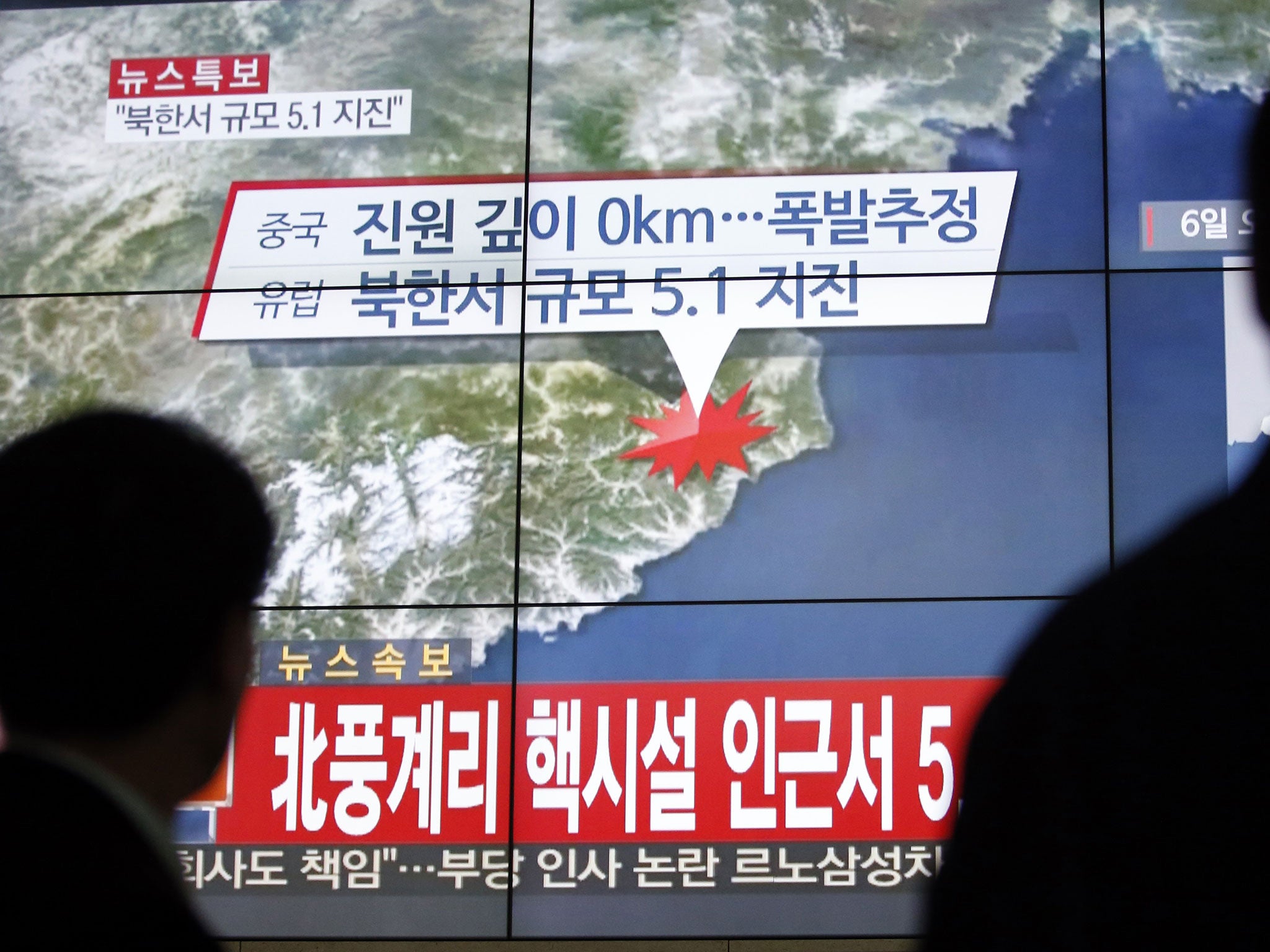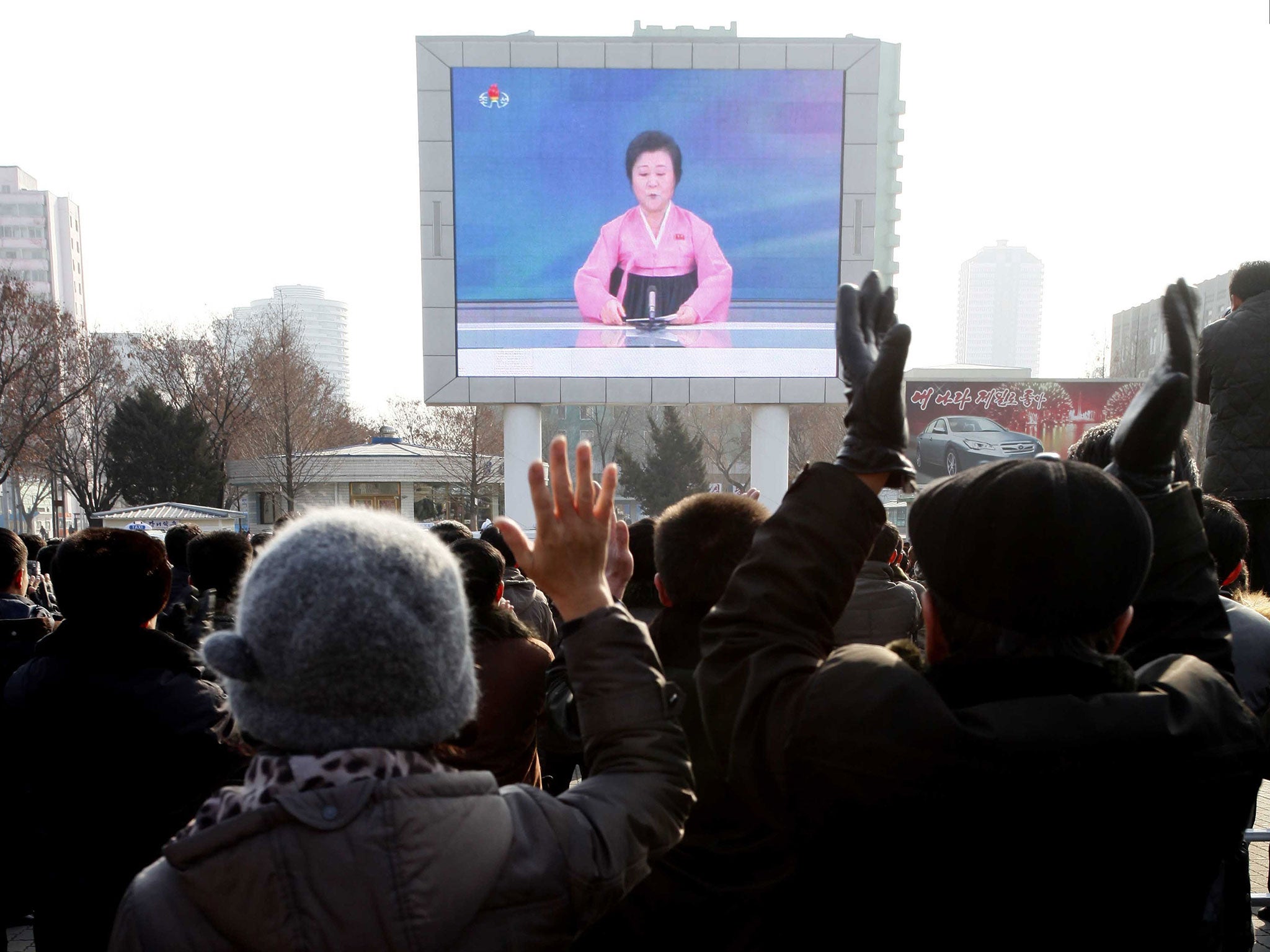North Korea hydrogen bomb test: Experts cast doubt on country's claims
The dictatorship's claim to have successfully conducted its first H-bomb test has prompted panic around the world

Your support helps us to tell the story
From reproductive rights to climate change to Big Tech, The Independent is on the ground when the story is developing. Whether it's investigating the financials of Elon Musk's pro-Trump PAC or producing our latest documentary, 'The A Word', which shines a light on the American women fighting for reproductive rights, we know how important it is to parse out the facts from the messaging.
At such a critical moment in US history, we need reporters on the ground. Your donation allows us to keep sending journalists to speak to both sides of the story.
The Independent is trusted by Americans across the entire political spectrum. And unlike many other quality news outlets, we choose not to lock Americans out of our reporting and analysis with paywalls. We believe quality journalism should be available to everyone, paid for by those who can afford it.
Your support makes all the difference.Experts have expressed scepticism over North Korea’s claims to have successfully conducted the country's first H-bomb test.
The country said that it completed its first test today, prompting panic in Japan and South Korea amid security concerns.
However, experts have cast doubt on the credibility of the claims. Yan Uk, senior research fellow at the Korea Defence and Security Forum, said: “Given the scale, it is hard to believe this is a real hydrogen bomb.
“They could have tested some middle stage kind [of device] between an A-bomb and a H-bomb, but unless they come up with any clear evidence, it is difficult to trust their claim.”

Analyst Joe Cirincione, a nuclear expert at global security organisation Ploughshares Fund, expressed similar doubts and said that the dictatorship may have mixed a hydrogen isotope in a normal atomic fission bomb.
“Because it is, in fact, hydrogen, they could claim it is a hydrogen bomb. But it is not a true fusion bomb capable of the massive multi-megaton yields these bombs produce.”
South Korean intelligence officials have also questioned the veracity of the country’s claims. One South Korean lawmaker told Yonhap news agency that they had been informed in a private meeting by the country's spy agency that North Korea may not have conducted the test due to the relatively small size of the seismic wave reported.
If true, the news would mean that North Korea has successfully tested a hydrogen bomb and could launch long-range nuclear missiles.
The head of the UN Comprehensive Test Ban Treaty Organisation, which monitors worldwide for nuclear testing, says that if their claims are true North Korea would be in breach of the treaty and represent a grave threat to international peace and security.
With additional reporting by Reuters
Join our commenting forum
Join thought-provoking conversations, follow other Independent readers and see their replies
Comments